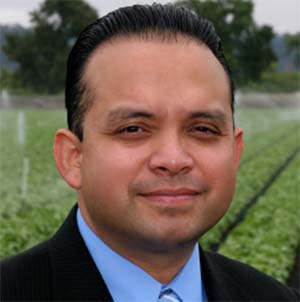A host of new laws are going into effect statewide Jan. 1, and Central Coast lawmakers have contributed their share.
From hospital reforms to health care to red-light camera tickets, Monterey Bay-area lawmakers managed to pass dozens of the more than 800 new laws going into effect in the new year. Some won’t be noticed by most people, but others are potentially life-altering, such as Assemblymember Luis Alejo’s California Dream Act bill giving undocumented college students access to state financial aid.
“The California Dream Act is no longer a dream, but a reality for many of our brightest students in our state,” said Alejo, a primary co-author of the bill. “This is an investment in their future and that of California.”
The bill renews the state’s place at the forefront of a national debate about immigration and was furiously opposed by many when it passed in 2011. But vows to repeal it, including an aborted petition drive by conservative Assemblyman Tim Donnelley, R-Twin Peaks, have fizzled.
Alejo’s bill isn’t the only one with broad implications. Millions are likely to be impacted by another piece of legislation outlining what kind of services insurers are required to offer California customers under the Affordable Care Act.
The bill is an important step to the rollout of statewide health exchanges in 2014, and was authored by then-Assemblyman Bill Monning, now a state Senator from Carmel. Monning called the legislation “transformative.”
“The law will prioritize prevention, health promotion, and wellness while offering individuals and small businesses comprehensive and affordable health care coverage,” said Monning, who was recently named chair of a Senate budget committee overseeing health care.
The bill established the Kaiser Small Group Plan as the benchmark for all insurers providing insurance through the state’s coming health exchange. It takes an aggressive stand, requiring insurers to cover everything from autism-spectrum treatment to rehab and mental health services. It also provides for services not always offered by insurers, including acupuncture or pediatric vision care, to name two examples.
When Gov. Brown signed Monning’s legislation and a companion Senate bill into law in September, they were praised by health care advocates for setting a strong standard for the state health care system under the law.
“These bills will protect consumers from underinsurance and junk insurance by setting a benchmark for comprehensive health benefits as envisioned under the federal Affordable Care Act,” Daniel Zingale, senior vice president of the California Endowment, said in a statement.
Monning also passed bills setting rates for a state-run insurance pool for high-risk patients, and a “clean-up” bill clarifying that mountain lions researchers should have access to state-issued research permits.
Cancer bill with local tie:
Monning is not the only lawmaker with transformative legislation around the corner.
Former state Sen. Joe Simitian, a Palo Alto Democrat who retired from state politics due to term limits, had a busy last year in office. His second effort to pass a bill giving women information about their breast density – a condition which can mask a breast cancer diagnosis – was a success.
The bill is based on an idea from Soquel resident Amy Colton, who has now survived a battle with breast cancer and a gubernatorial veto and will see the bill go into effect in April.
A nurse, Colton called the bill a leap forward for California women. She said numerous studies have shown notifications improve cancer detection, and praised Simitian’s dogged pursuit of the bill.
“Despite the disappointment of the Governor’s veto in 2011, Senator Simitian never once wavered in his determination,” Colton said.
Simitian also passed bills making it easier for drivers to challenge red light camera tickets, preserving a tax check-off for breast cancer research, recycling of unused medication and streamlining school construction.
More legislation:
Monning and Alejo teamed up on a bill extending the life of the Fort Ord Reuse Authority. Other Alejo bills extended the notification period for non-teacher school employee layoffs, freeing up money for fertilizer research and disclosing more information in health care district employment contracts – a bill passed after a recent executive pay scandal at Salinas Valley Memorial Hospital.
Ex-Sen. Sam Blakeslee, the local delegation’s lone Republican, forged through the Democrat-controlled legislature and governor’s office to pass a bill aimed at bolstering the referral process to state mental hospitals, legislation aimed at addressing violence at Atascadero State Hospital.
“An efficient and accurate court referral system will better ensure that those who commit crimes without mental illness are referred to prisons, rather than state hospitals,” Blakeslee said at the time.
But Blakeslee was also notable for what he didn’t, and couldn’t, do – run for reelection, and pass stricter rules on lawmaker gifts.
Another bill going into effect has an unfortunate tie to Santa Cruz County. Then-Assemblymember Jerry Hill, D-San Mateo, saw his legislation for stricter regulation of party busses pass into law after the death of Santa Cruzan Natasha Nolan.
In July, Nolan fell from a bus onto Highway 17 during a fight as she and a group of friends were returning from a concert on one of the popular charters. The bill was inspired by a 2010 incident that left a Burlingame 19-year-old dead.










